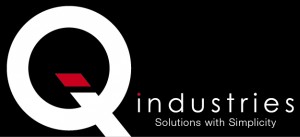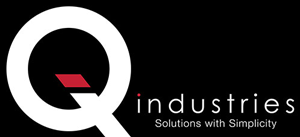Re-strategising a Family Business: Internationalising through Succession Planning

Handing over the baton in the management of a family enterprise to the next generation is a critical challenge for many business founders. Very often, succession can be a challenging issue, if not carefully planned. Questions surrounding family dynamics and the need to address core decision-making processes in the company, including governance and communications, need to be carefully addressed in business succession planning.
Q Industries, a provider of hospitality solutions, engages a hybrid management model comprising family members and external professionals. To effectively manage and guide the next generation leaders, the founders find that it is imperative to secure partnership with a trusted adviser who can help with succession planning and in areas related to talent and career management, skills development, governance and communications.
Established in 1987, Q Industries delivers products to restaurants, clubs, hotels and resort establishments in Asia Pacific and beyond. From humble beginnings focusing on the Singapore market, they have since expanded offshore, with sales offices and warehousing facilities in neighbouring countries like Malaysia and Vietnam. With 34 years of experience in the hospitality industry, Q Industries also enjoys an extensive global client network in countries that include India, Africa, and the Middle East.
Q Industries is now recognised as a pacesetter in the integration of hospitality solutions.
Feature No. 5 of the SBF Company Case Study Series takes a multifaceted look at how the founders of Q Industries plan for business succession, and in so doing, re-strategised approaches that enabled the second generation leaders to better straddle the management of an established family business, locally and beyond.
Succession Planning and Re-strategisation
Tending to the growth of a family business is an exciting process. To the company leaders, a trusted adviser can be a key resource during this process, in terms of succession preparation, business upscaling and the creation of broader company brand appeal.
It was during a re-strategisation of the business in 2015 that the founders, Mr Tony Quek and Mrs Jacqueline Quek, thought it was wise to welcome on board an external Director, Mr Christophe Megel, as a trusted adviser to their family-heavy management structure1. Mr Megel was formerly an Executive Chef at The Ritz-Carlton hotel and Chief Executive Officer (CEO) of a prominent culinary school in Singapore. Until that time, the growth and direction of the company were primarily driven by the first generation leaders.
Being next in line in assuming the reins of the business proved somewhat challenging for Ms Huilin Quek (CEO of Q Industries), due in part to differences in opinions between the two generations and the intricacies of working within the context of a family-owned business, despite both generations having the same goals for the enterprise. Aside from how Q Industries should move forward, questions such as when the next generation should fully step forward and when the first generation leaders should ease their hold, have to be addressed.
Besides being a coach and mentor to Ms Quek, Mr Megel has helped to provide a balanced approach and holistic view on the business for the core management team across both generations, ensuring open communication and trust. With a strategic focus on forward-looking plans to further grow Q Industries locally and beyond, a deep and fundamental change is required in restructuring and corporatising the business.
On Mr Megel’s advice, the family agreed and decided to approach Enterprise Singapore (ESG), and subsequently secured their initial government grant – Capability Development Grant (CDG) – in March 20152. Together with ESG, the Management identified key pillars that were crucial to the business, i.e., adopting a more strategic and structured approach in restructuring their business framework, changing its brand image and positioning the company as a hospitality solutions integrator instead of merely a trading company as was the case when it was first established.
Armed with the first governmental grant and having put in place key standard operating procedures and policies, Q Industries continued to work with ESG to take on new strategic projects in a spectrum of areas – digital capabilities, product development and financial management – to facilitate and accelerate their business transformation and expansion plans.
Along with ESG’s support and the next generation leaders firmly holding the reins, business continuity is maintained even as the company journeys along the path of transformation. While daily operational activities and tactical strategies are the remit of the younger Queks, strategic decisions are made collectively with the first generation leaders.
Internationalising – Versatility is Key
In 1992, the founders embarked on their first overseas expansion – into the Malaysian market. Together with a Malaysian ex-client turned business partner, Q Industries & Enterprise (M) Sdn. Bhd was established3. As former British colonies, Singapore and Malaysia share similar legal structures that are based on the English Common Law System, as well as a comparable business environment. Given these upsides, the only key challenge Q Industries faced as a new entrant was the marketing and establishment of its brand presence in the Malaysian market. Nonetheless, given the longstanding and trusted relationship with their partner who is a veteran in the hospitality industry, any challenges faced were less profound as compared to its subsequent venture into the Vietnamese market.
The economy of Vietnam remained relatively closed until the early 1990s. In 1994, at the behest of a Singaporean client who was building a hotel during that period, Q Industries successfully tendered for the supply of operating equipment to the client4. Upon initiation of this particular project, it was therefore imperative to extend Q Industries’ presence to Vietnam. A representative office was first set up to facilitate communications as language is seen as a major obstacle given that English is not commonly used in the country.
Leveraging on First-Mover Advantage
Perseverance and dedication are traits deemed important to the company and, in this regard, the language constraint did not deter the founders from expanding organically. During that
period, Q Industries was the first foreign enterprise to develop its market presence in Vietnam within the hospitality sphere as a hospitality solutions integrator.
From a simple representative office in the early days, Q Industries went on to set up warehousing facilities in Ho Chi Minh City and a sales office in Hanoi. Q industries also became a one-stop destination for integrated hospitality solutions in the country where they have established two distinctive business divisions: Lifestyle Division (Q.uriosity Culinary Academy and The Posh Duck) and Q.ulinary Essentials Division.
One key advantage in being the first mover in Vietnam back then was the growth opportunities offered. Operating within an environment where there was little to no competition during the early stages, Q Industries was able to gain a better understanding of the market and ride the wave as Vietnam’s economy grew in the 1990. On the back of a strong foundation that they had built, Q Industries was able to further consolidate its market position and continue strengthening its foothold as the economy in Vietnam gradually opens up. Premised on its entrenched grip in the sector, Q Industries continues to lead and remains a key supplier in the country in spite of rising competition.
Other than cultural challenges, the ability to understand, respect and appreciate the way Vietnamese go about conducting their businesses remain key fundamentals to Q Industries’ success in the country.
“Regardless of where we come from, we are always a ‘guest’ in another country and to respect that each country is unique in its own way.”
— Huilin Quek, CEO
Gaining a deep appreciation of cultural norms and respecting such differences would come in useful as Q Industries were to discover, even within the same country, with natives in the North and South of Vietnam having vastly distinct ways of doing business. In addition, the company leaders soon learned quickly that Vietnamese from both regions do not have a fixed modus operandi and what may be considered the ‘right’ way of doing business from one standpoint may not apply when looked through the lens of another. Given these unique characteristics, Q Industries learnt to embrace versatility by adapting processes and managerial practices accordingly, and in tandem with the work practices and norms of the locals in both the northern and southern regions, while maintaining strict adherence to the company’s core values.
Aside from embracing versatility in both the processes and the managerial approach to issues, the Management was also cognizant of the importance and the need to adopt a flexible stance in choosing different entry modes for different markets.
“So the international division is quite flexible in the way we approach individual markets because each market is very different from how they operate and that way we can be successful”
— Huilin Quek, CEO
Deepening International Footprints
Aside from the establishment of offices in Malaysia and Vietnam, Q Industries also deepened their internationalisation footprints via distributorship, for their kitchen utensil brand, Quantum Pro, to countries like China and India, yet taking a vastly different mode of entry by working and connecting directly with local business owners in countries like Australia and Maldives, in part due to regulatory differences. From a strategic perspective, adopting a versatile approach when internationalising offers Q Industries the flexibility in evaluating and entering different markets using a model most befitting to the country context. This strategic approach enhances the success rate for its offshore business ventures.
In a rapidly evolving environment, businesses often need to remain nimble to be relevant and to stay ahead of market competition. Being adroit in capability development is an important process for companies operating in highly dynamic international markets. In order to thrive, the Quek siblings believe that it is important to develop skills in managing complex multi-stakeholder structures, especially in an increasingly interconnected world, and to be quick to read and act on signals of change — not only in relation to Q Industries’ products and services but also in the adoption of business models, processes and strategies.
Big Data, Better Insights
One of the biggest challenges faced by the Quek siblings is to seek an effective Enterprise Resource Planning (ERP) system that offers customisation capabilities that would fit their projected business needs over the next 10 years.
Technology today is no longer seen merely as an enabler for daily business activities. It is at the core of Q Industries’ business strategy, where it is used to generate, store and evaluate relevant information to gain a competitive edge over peers. It influences the foundation of their business functionality and defines how its business is handled today.
A new ERP system was introduced in August 2019 for Q Industries’ Singapore operations and, in March 2020, for its operations in Vietnam. Q Industries went beyond merely automating its current business process by reinventing it, including making improvements in its purchase order process, reducing the time spent per project from commencement to completion, and increasing the speed of quotation generation. The adoption of these processes accelerated decision making.
In addition to the adoption of a new ERP framework, Q Industries also leveraged on Power Business Intelligence (BI), a business analytical tool to produce data-based insights. These insights are then transformed into “data-informed decisions” which enhances business outcomes. To the Quek siblings, there is simply too much at stake today in discounting research and data information.
Clearly, having a data ecosystem is crucial to the success of Q Industries as it serves as a single source of ‘truth’ to improve efficiency and effectiveness, and to establish data reliability and transparency across the organisation. Most importantly, it provides the stakeholders of Q Industries with a new way to connect, collaborate, conduct business and build ‘bridges’ across markets – Vietnam and Singapore – using a central framework for action and decision making.
Staying Agile in the Face of a Pandemic
Globally, the hospitality sector has been one of the hardest hit by the COVID-19 pandemic. It is also the first major crisis the Quek siblings had to encounter. For Q Industries, the pandemic affected their operations in Singapore, Malaysia and Vietnam unevenly.
“Our main challenge was how to stay agile and basically, adapt very quickly. When the tide comes in, you catch the wave and not miss the wave.”
— Huilin Quek, CEO
Being cognizant of Singapore’s small domestic market and how the traditional approach to business operation is no longer tenable in light of the pandemic, Q Industries took a decisive step by shifting their focus onto a product known as ‘Cerafusion Technology’5 (a leading edge patented technology designed to produce massive amounts of ions and controlled levels of ozone) that sanitises the environment by eliminating viruses and bacteria in the air and on surfaces.
Knowing that the use of technology during this time is imperative in helping to mitigate any downside risk posed by the current situation, Q Industries approached ESG and brought on board the said technology. By relooking at their business strategies and maneuvering according to changing circumstances, Q Industries was able to promptly adapt and establish a ‘lifeline’ amidst the crisis.
Making a Multifaceted Approach Work
Close since their younger days, the Quek siblings complemented each other’s strength and shared a common vision as the next generation of business leaders, striving to build positive brand equity for Q Industries by ensuring intergenerational leadership continuity, developing receptivity to work practices and adopting bold re-strategisation approaches.
The case of Q Industries highlights key lessons that underscore the importance in understanding market diversity and cultural variations that influence work practices – crucial ingredients that determine the probability of success on the global stage. Developing an instinctive tact and being deliberate and conscious in cultivating cultural sensitivities when managing cross-cultural opinions are traits that Q Industries holds steadfast to in its international dealings
Aside from embracing diversity, structural norms and strategies may also need to evolve to face emerging challenges that are unique to each market.
Q Industries’ multifaceted approach in managing a family business across borders symbolises a global mindset that is premised on deliberate succession planning and versatility

